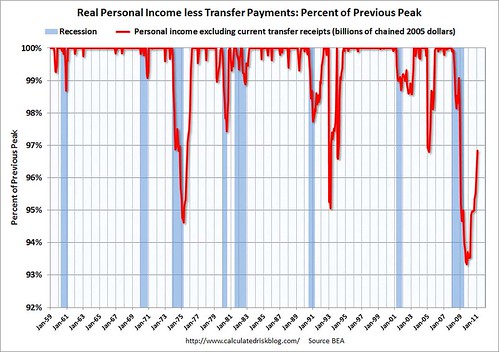
By virtue of having a week's worth of news as green as its school colors, Michigan State managed to have yesterday's linkspam pretty much all to itself. Now, the rest of the Midwestern public research universities get their turns.

University of Michigan: The Population Bomb: How we survived it
ANN ARBOR, Mich.—World population will reach 7 billion this year, prompting new concerns about whether the world will soon face a major population crisis.I think someone is being too optimistic. Then again, it's an economist saying this, not an ecologist.
"In spite of 50 years of the fastest population growth on record, the world did remarkably well in producing enough food and reducing poverty," said University of Michigan economist David Lam, in his presidential address at the annual meeting of the Population Association of America.
Lam is a professor of economics and a research professor at the U-M Institute for Social Research. The talk is titled "How the World Survived the Population Bomb: Lessons from 50 Years of Exceptional Demographic History."
In 1968, when Paul Ehrlich's book, "The Population Bomb," triggered alarm about the impact of a rapidly growing world population, growth rates were about 2 percent and world population doubled in the 39 years between 1960 and 1999.
According to Lam, that is something that never happened before and will never happen again.
University of Michigan: Personal income up, but are we better off?
ANN ARBOR, Mich.—Although U.S. personal income per capita has risen 5.7 percent since 2000, an increase in tax-exempt benefits provided by the government and employers accounted for all of the income growth in the past decade, says a University of Michigan economist.See this graph from Calculated Risk for personal income minus transfer payments:
Thanks to these nontaxable transfer payments, which include Social Security, Medicare, Medicaid, health insurance, unemployment, welfare and disability benefits, inflation-adjusted personal income per capita rose nearly $2,200 since 2000, despite America's worst economic recession since the Great Depression.
But when growth in transfer payments and employer-paid benefits are excluded, U.S. taxable income per capita actually decreased 3.4 percent from $32,403 to $31,303, says economist Don Grimes of the U-M Institute for Research on Labor, Economics, and the Economy.
"Last week, the Bureau of Economic Analysis released preliminary personal income statistics for all states and the data shows that personal income per capita in the United States increased," Grimes said. "But, why don't we feel better off? Because the personal income per capita data includes 'spending' that we don't recognize as contributing to our economic well-being.
"Most people are not going to feel better off if their employer has to pay higher health insurance premiums, even if to government statistics experts it is the appropriate way to measure our well-being, which strictly speaking it is."

No, we're not back to where we were before the recession.
News from Wisconsin, Purdue, and Ohio State after the jump.

University of Wisconsin: UW-Madison’s economic impact statewide hits $12.4 billion
March 30, 2011
by Dennis Chaptman
The University of Wisconsin-Madison's profound impact on Wisconsin's economy, one that totals $12.4 billion annually, is detailed in a new report (PDF) that underscores the importance of the university to the state's economic well being.In the very first post, I wrote about preserving cultural institutions, particularly ones that transmit knowledge. In that first post, I singled out libraries. Colleges and universities also fall into this category. Kunstler and other peak oilers seem to have a dim view of the future of higher education. They may be right, but I hope they're wrong.
The report’s findings indicate that UW-Madison, along with its affiliated organizations and startup companies, support 128,146 Wisconsin jobs and generate $614 million in state tax revenue.
The report's findings indicate that UW-Madison, along with its affiliated organizations and startup companies, support 128,146 Wisconsin jobs and generate $614 million in state tax revenue.
"The work and workforce that are developed at UW-Madison have concrete benefits for virtually every part of Wisconsin at a time when the state is faced with serious economic challenges," says Chancellor Biddy Martin. "Preserving UW-Madison as a talent magnet and a driver of the state's economy is more critical today than ever before."
The report, done by Madison-based NorthStar Economics Inc., found that UW-Madison research has fostered the formation of at least 283 startup companies in Wisconsin that support more than 21,000 jobs.
Economists also found that for every $1 of state tax investment in the university, there is $21.05 in economic activity in the state.

Purdue University: Study: 3 square meals a day paired with lean protein help people feel full during weight loss
March 30, 2011
WEST LAFAYETTE, Ind. - Eating fewer, regular-sized meals with higher amounts of lean protein can make one feel more full than eating smaller, more frequent meals, according to new research from Purdue University.Ah, First World problems! It's nice to have to worry about having too much to eat instead of too little. Still, knowledge of how to eat healthily (and figure out how to preserve and apply that knowledge in the future) is worth having.
"We found that when eating high amounts of protein, men who were trying to lose weight felt fuller throughout the day; they also experienced a reduction in late-night desire to eat and had fewer thoughts of food," said Heather J. Leidy, an assistant professor of nutrition and exercise physiology at the University of Missouri who was a postdoctoral researcher at Purdue for this study.
"We also found that despite the common trend of eating smaller, more frequent meals, eating frequency had relatively no beneficial impact on appetite control. The larger meals led to reductions in appetite, and people felt full. We want to emphasize though that these three larger meals were restricted in calories and reflected appropriate portion sizes to be effective in weight loss."
The findings are reported in this month's issue of Obesity.
Purdue University: Purdue to use $1.25 million NSF grant to launch sustainable energy learning program for rural Indiana teachers
March 21, 2011
WEST LAFAYETTE, Ind. - Purdue University researchers are leading a program for Indiana's rural high school teachers that encourages participation in science, technology, engineering and mathematics to groom the next generation of leaders in sustainable energy.This is the kind of program I'd like to see more of.
The Discovery Learning Research Center in Purdue's Discovery Park is launching Research Goes to School, a five-year statewide STEM initiative supported by a $1.25 million grant from the National Science Foundation.
"Creating a format for delivering the advanced STEM research done at Purdue into Indiana high school classrooms is very important to Purdue," said Tim Sands, executive vice president for academic affairs and provost at Purdue.

Ohio State University: Ohio State study: Some banks help keep mortgage holders out of default
While the nation's foreclosure crisis has focused blame on bad loan practices by some lenders, new research shows how some banks may have actually reduced the default risk of their homebuyers.Another reason to bank locally.
Researchers found that low-income homeowners who received a mortgage from a local lender were less likely to default on their loans than are those who borrowed from a more distant bank or mortgage company.
Even if two similar homeowners received the same home loan, with the same interest rate, the one who got the loan at the local lender might be better off in the long run.
All of the above included in Overnight News Digest: Science Saturday (April Foolishness edition) on Daily Kos.
No comments:
Post a Comment